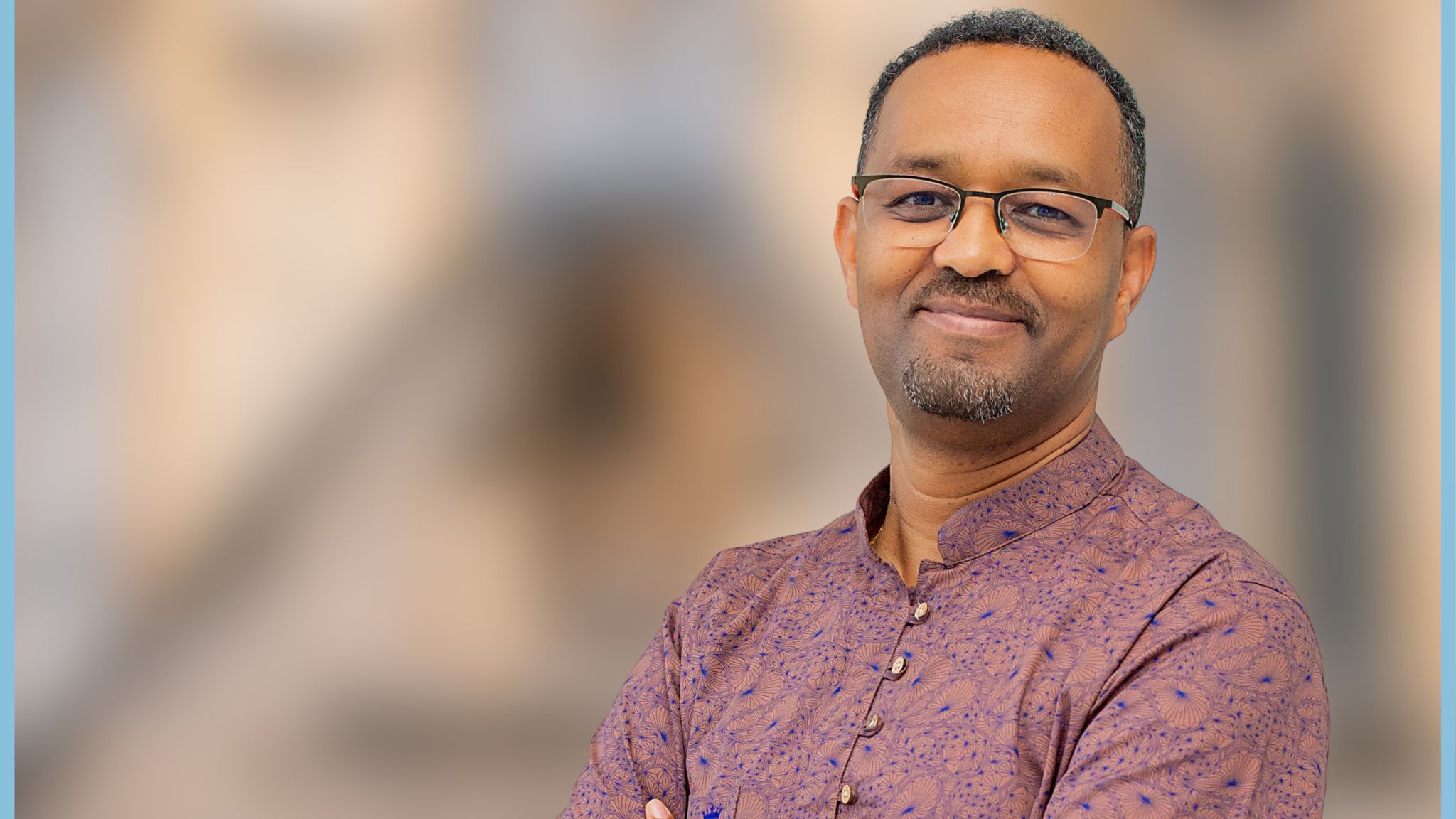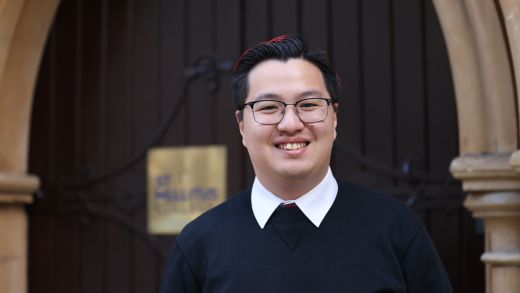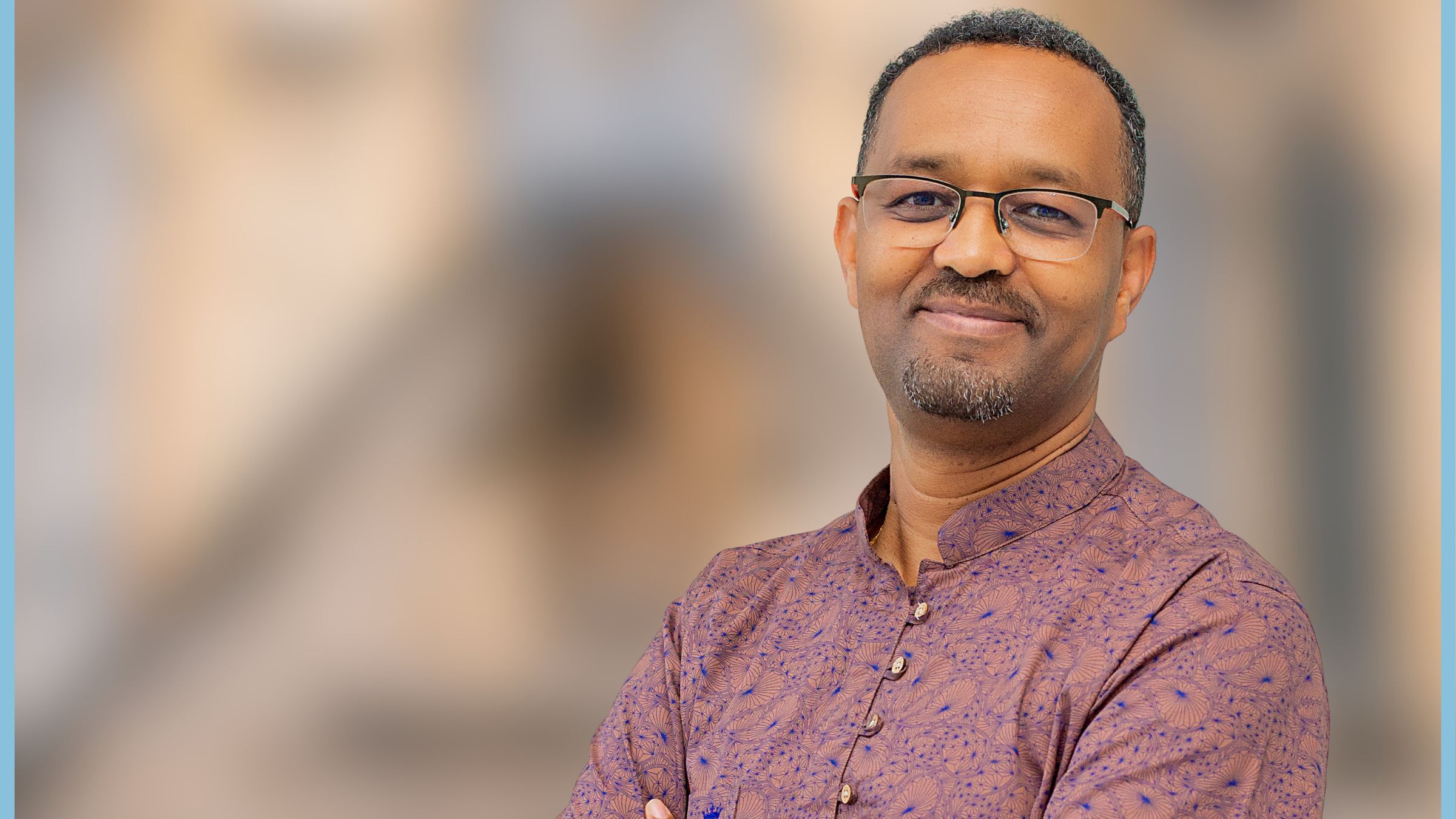
Tell us a bit about yourself.
My name is Girma Mohammed, and I have had the privilege of working with the British Bible Society for the past ten years. During this time, my role has focused on demonstrating the continued relevance of biblical values and wisdom in shaping public life, both in Africa and beyond. Through research, public engagement, and collaborative projects, I have sought to connect Scripture with contemporary social and ethical issues.
What is your faith story?
I grew up in a religious culture where God was portrayed as a transcendent, distant judge or ruler. A series of family-related crises eventually led me to a small, rural church in southern Ethiopia. The church was not particularly organised—there was no formal liturgy or clearly defined leadership structure. Rather, it was a simple gathering of believers who came together on Sundays for prayer and singing. Amid this unstructured setting, I heard someone address God as “the Father" in their prayers. The phrase caught me off guard. It was this metaphor—the Father—and its deeply relational meaning that stirred something within me.
That moment marked the beginning of my journey toward following Christ.
What are you passionate about?
We live in a world increasingly defined by sociopolitical fractures and deepening cultural and spiritual entrenchment. I am deeply motivated by the potential of academic inquiry to serve as a bridge for reconciliation—a theme that lies at the very heart of the Christian message. Through rigorous study and thoughtful engagement, I believe we can cultivate deeper understanding across divisions. My hope is to contribute to a more compassionate and just society by integrating faith, scholarship, and dialogue in meaningful ways.
What aspects of St Mellitus inspired you to choose it as a place to work?
I am drawn to St Mellitus College’s commitment to combining academic rigor with a posture of worship. This integration is particularly compelling to me, as I view worship as an epistemic process—a means of acquiring and validating knowledge. I am also intrigued by the College’s innovative approach to making theology accessible and relevant in everyday contexts. Most importantly, I see St Mellitus as a space where diverse theological voices are welcomed without inhibition and woven together to reflect the richness of the intercultural Church.
What do you find most fulfilling about your role at St Mellitus College, and what impact do you hope to make?
As a lecturer and tutor in global theology, I am committed to creating a shared learning space that brings together theological voices from both the West and the Majority World. The Church and its mission are strengthened when the rich resources of the diverse global Christian community are united. I find it deeply meaningful and exciting to foster a safe, dialogical environment where barriers are removed and misconceptions are addressed through open and respectful engagement.
What’s one key lesson or piece of wisdom from your past experiences that you bring into your work every day?
The value of and commitment to truly listening to one another is often overlooked in a world filled with constant noise and shouting to be heard. Over the past several years, the opportunity to travel the world and engage with leaders at various levels has taught me that we are more fruitful when we allow ourselves to be vulnerable and listen—rather than trying to project strength and dominate. This also applies to the teaching-learning process.
If you could have a coffee with any historical or biblical figure, who would it be, and what’s the first question you’d ask them?
If I had the opportunity to have coffee with any biblical figure, I would choose the Apostle Paul. He was a strong yet complex personality who played a pivotal role in shaping and spreading the Christian faith. One aspect of his life that deeply interests me is the internal conflict he experienced—between his deep-rooted Jewish identity and his mission to the Gentiles. This tension is especially evident in Romans 9–11. My first question to him would be: What was the emotional and spiritual logic behind that inner struggle? I’d like to understand more about how he navigated that profound split in the soul.
If you had to describe your role at St Mellitus College using only emojis, which ones would you pick?
It would be a thinking emoji 🤔. This is because it is a process of listening, reflecting and learning.
Dr Girma Mohammed
Dr Girma Mohammed has a scholarly background in theology and political philosophy, and experience in public engagement.
Find out more
More news from St Mellitus College…

